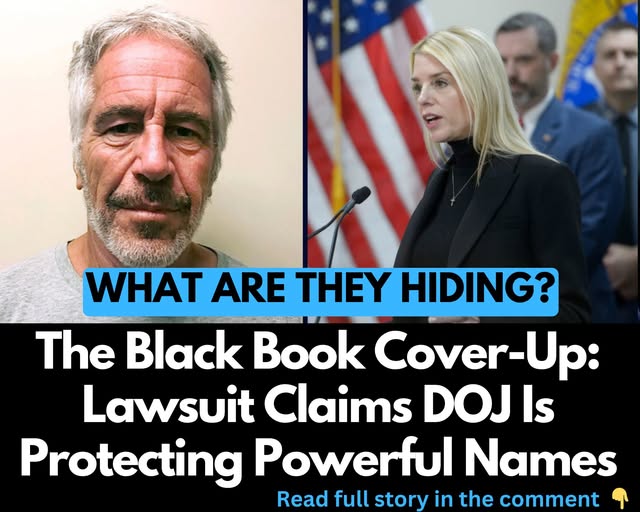The Trump administration is facing legal action for allegedly violating federal transparency laws by refusing to release documents tied to Jeffrey Epstein’s network, according to a new lawsuit filed in Washington, D.C.
In a 6-page complaint, conservative watchdog group Judicial Watch accuses the U.S. Department of Justice (DOJ), under Attorney General Pam Bondi, of repeatedly violating the Freedom of Information Act (FOIA). The group claims that the DOJ has stonewalled multiple requests over recent months for records related to Epstein’s alleged associates and client lists.
“The Justice Department needs to respond to public demands for transparency under law and release the Epstein files under FOIA,” said Judicial Watch President Tom Fitton in a press release.
The lawsuit centers on a series of FOIA requests filed between February 21 and February 28, 2024, aimed at uncovering internal DOJ and FBI communications about Epstein’s alleged network, including any records revealing the names of his clients or associates.
🔍 What Judicial Watch Is Demanding
Judicial Watch’s initial FOIA request asked for all communications between AG Pam Bondi and others regarding “lists or records depicting the identities of clients or associates of Jeffrey Epstein.” The request also sought documentation on the handling and potential release of those records.
To underscore the urgency of the request, Judicial Watch cited a Fox News article suggesting that Trump’s return to the White House might finally pave the way for the release of Epstein’s infamous “black book.”
But despite receiving acknowledgments and delay notices from the DOJ and FBI, Judicial Watch says the agencies have since gone dark—offering no follow-up, determinations, or record disclosures.
⚠️ A Pattern of Delays and Denials
On February 27, Judicial Watch filed identical FOIA requests with the DOJ’s criminal division and the FBI, seeking all records tied to Jeffrey Edward Epstein.
The DOJ’s criminal division dismissed the request, claiming it was a duplicate of one made in 2019—yet Judicial Watch says that 2019 request is still unresolved.
The FBI responded to the same request with a 10-day extension, then allegedly stopped replying entirely.
On February 28, Judicial Watch escalated its efforts with a targeted FOIA request focused on FBI Director Kash Patel, a Trump ally who had previously promised transparency around Epstein’s records during his confirmation process.
That request mirrored the earlier ones—seeking any communications or documents Patel may have had related to lists of Epstein’s clients or associates. Again, the FBI acknowledged the request, issued an extension, and then went silent, according to the lawsuit.
📜 What the Lawsuit Demands
Judicial Watch is asking the court to:
Declare that the DOJ is in violation of FOIA
Compel the DOJ to search for and produce any responsive records
Order the release of non-exempt records and/or an explanation of any exemptions claimed
Bar the DOJ from withholding responsive documents moving forward
The group argues that the public has a legal right to transparency, and that the DOJ’s continued noncompliance is causing “irreparable harm” by blocking information of significant public interest.
⚡ Why It Matters
Epstein, a disgraced financier and convicted sex offender, died in federal custody in 2019 while awaiting trial on sex trafficking charges. His death, officially ruled a suicide, has fueled public speculation and scrutiny over the identities of his alleged clients and collaborators—especially given his connections to powerful elites in politics, business, and entertainment.
Judicial Watch’s lawsuit taps into that ongoing demand for answers and suggests that key agencies under the Trump administration may be shielding explosive information from public view.
The outcome of this lawsuit could determine whether long-sought-after files tied to one of the most infamous criminal cases of the century will finally see the light of day.
